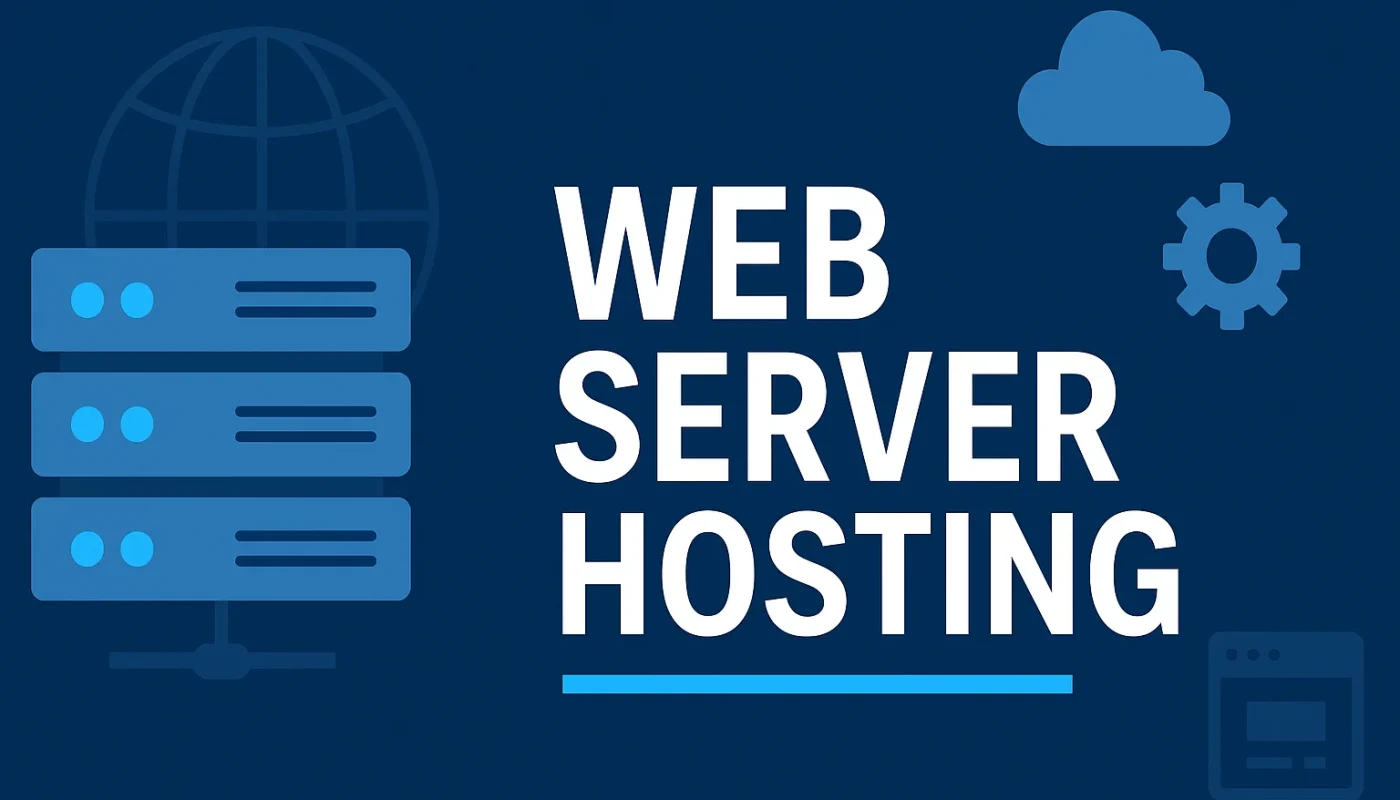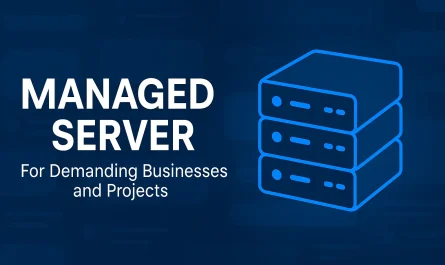In today’s digital world, a strong online presence is essential for businesses, entrepreneurs, and content creators alike. Behind every website lies a critical component that keeps it visible and accessible on the internet — web server hosting. If you’ve ever wondered how websites stay online 24/7, or what hosting solution is right for your project, this guide will walk you through everything you need to know.
What Is Web Server Hosting?
Web server hosting refers to the service that enables individuals or organizations to make their websites accessible via the World Wide Web. Hosting providers rent out or sell space on physical or virtual servers located in data centers, allowing websites to store files, databases, images, and applications.
Every time a user types your domain name into a browser, the web server retrieves the necessary data and delivers it to the user’s device. Without web hosting, your website would be inaccessible to the world.
Main Types of Web Server Hosting
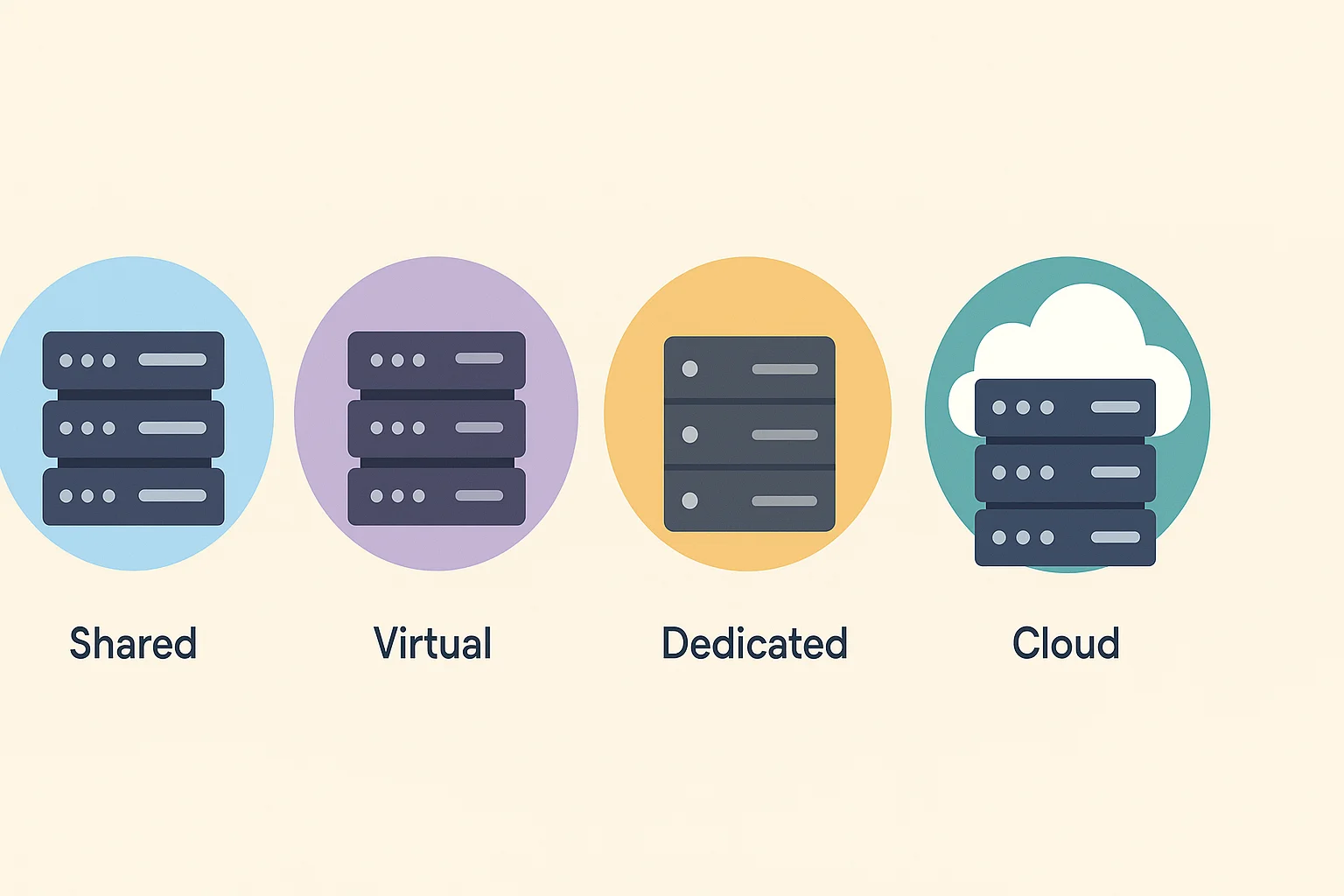
There are different types of web server hosting, each designed for specific use cases, budgets, and performance needs. Here’s a breakdown of the most common hosting options:
1. Shared Hosting
Shared hosting is the most affordable and beginner-friendly option. Multiple websites share a single physical server and its resources. It’s perfect for small websites, personal blogs, or startups with limited traffic and budget.
2. VPS Hosting (Virtual Private Server)
VPS hosting offers a virtualized server environment where resources are allocated individually. It bridges the gap between shared and dedicated hosting, providing better control, security, and performance. It’s ideal for growing websites and online stores.
3. Dedicated Hosting
A dedicated server is a physical machine exclusively reserved for one client. It delivers top-tier performance, security, and customization capabilities. This type of web server hosting is suitable for large businesses, high-traffic websites, and mission-critical applications.
4. Cloud Hosting
Cloud hosting relies on multiple interconnected servers to distribute the load. It offers high availability, scalability, and redundancy. This is the best choice for businesses expecting unpredictable traffic spikes or needing on-demand scalability.
How Does a Web Server Work?
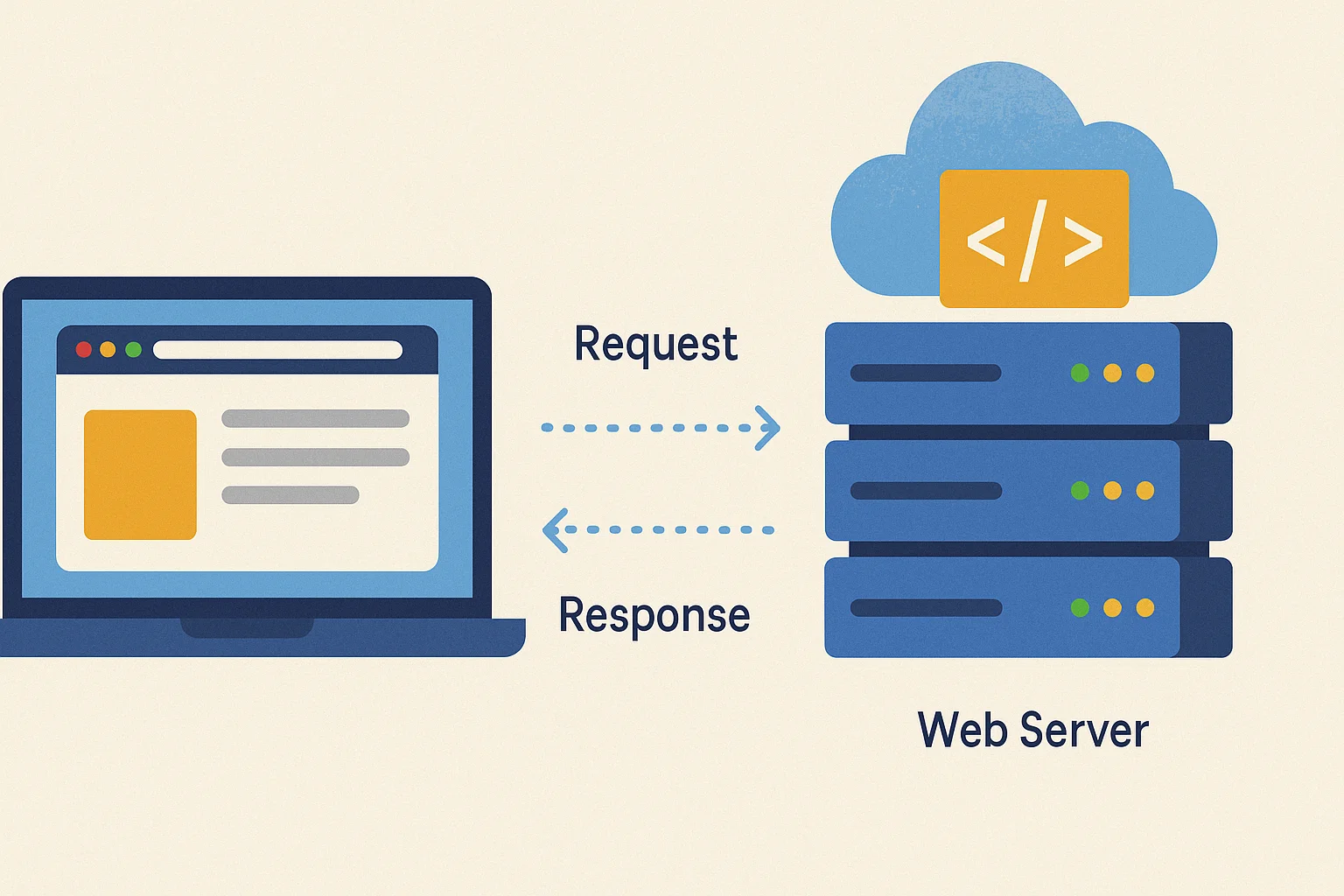
A web server is a combination of hardware and software that uses the HTTP (Hypertext Transfer Protocol) to respond to client requests made over the Internet. It can be powered by server software like Apache, Nginx, or LiteSpeed.
When users visit your site, their browsers send a request to your hosting server. The server then processes that request and returns the necessary files (HTML, CSS, JavaScript, images, etc.). A well-configured web server hosting solution ensures that this process is fast, secure, and seamless.
The Importance of Security in Web Server Hosting
Security is a crucial aspect of web server hosting, especially if you manage user data, handle transactions, or operate a business website. A reliable hosting provider should offer:
- Free or paid SSL certificates.
- Daily backups and restore options.
- Malware detection and removal.
- DDoS protection.
- Firewall configurations and access control.
Neglecting security not only exposes you to cyber threats but can also damage your reputation and lower your SEO rankings.
Performance and Uptime Matter
Page loading speed and server uptime are critical to both user experience and search engine visibility. A slow or frequently unavailable site can lead to high bounce rates and lost customers.
When evaluating web server hosting providers, pay close attention to:
- Hardware specifications (SSD vs HDD).
- CPU and RAM allocation.
- Uptime guarantees (99.9% or higher is recommended).
- Server location (choose data centers close to your target audience).
- Content Delivery Network (CDN) integration.
Fast websites improve engagement and conversions, and they’re favored by search engines like Google.
Web Server Hosting and SEO

Most website owners focus heavily on content and keywords — and rightfully so. However, your web server hosting plays a silent yet significant role in your site’s SEO performance.
Here’s how hosting impacts SEO:
- Speed: Faster servers lead to faster page load times — a ranking factor in Google.
- Uptime: Frequent downtimes can harm your site’s reputation with search engines.
- Server location: Hosting closer to your audience improves latency and localized SEO.
- HTTPS availability: A secure connection (SSL) is a must-have for SEO today.
Choosing a reliable host is an investment in long-term search visibility.
How to Choose the Right Web Server Hosting Provider
There’s no one-size-fits-all when it comes to hosting. Here are key factors to consider before making a decision:
- Understand your needs
Are you running a blog, a portfolio site, an eCommerce store, or a web application? Each has different resource demands. - Check scalability
Choose a provider that allows easy upgrades as your site grows. - Review customer support
Look for 24/7 technical support via chat, phone, or ticket. - Read user reviews
Look beyond marketing. Third-party reviews and forums offer real insights. - Compare pricing and value
Don’t go for the cheapest. Consider uptime guarantees, support quality, backup frequency, and included features.
Free Hosting vs Paid Web Server Hosting
While there are free hosting options available, they come with significant limitations:
- Low performance and limited bandwidth.
- Ads displayed on your website.
- Poor security.
- No custom domain support.
If you’re serious about your online presence, investing in paid web server hosting is the smartest route. It offers better performance, security, and professionalism.
Managed vs Unmanaged Hosting
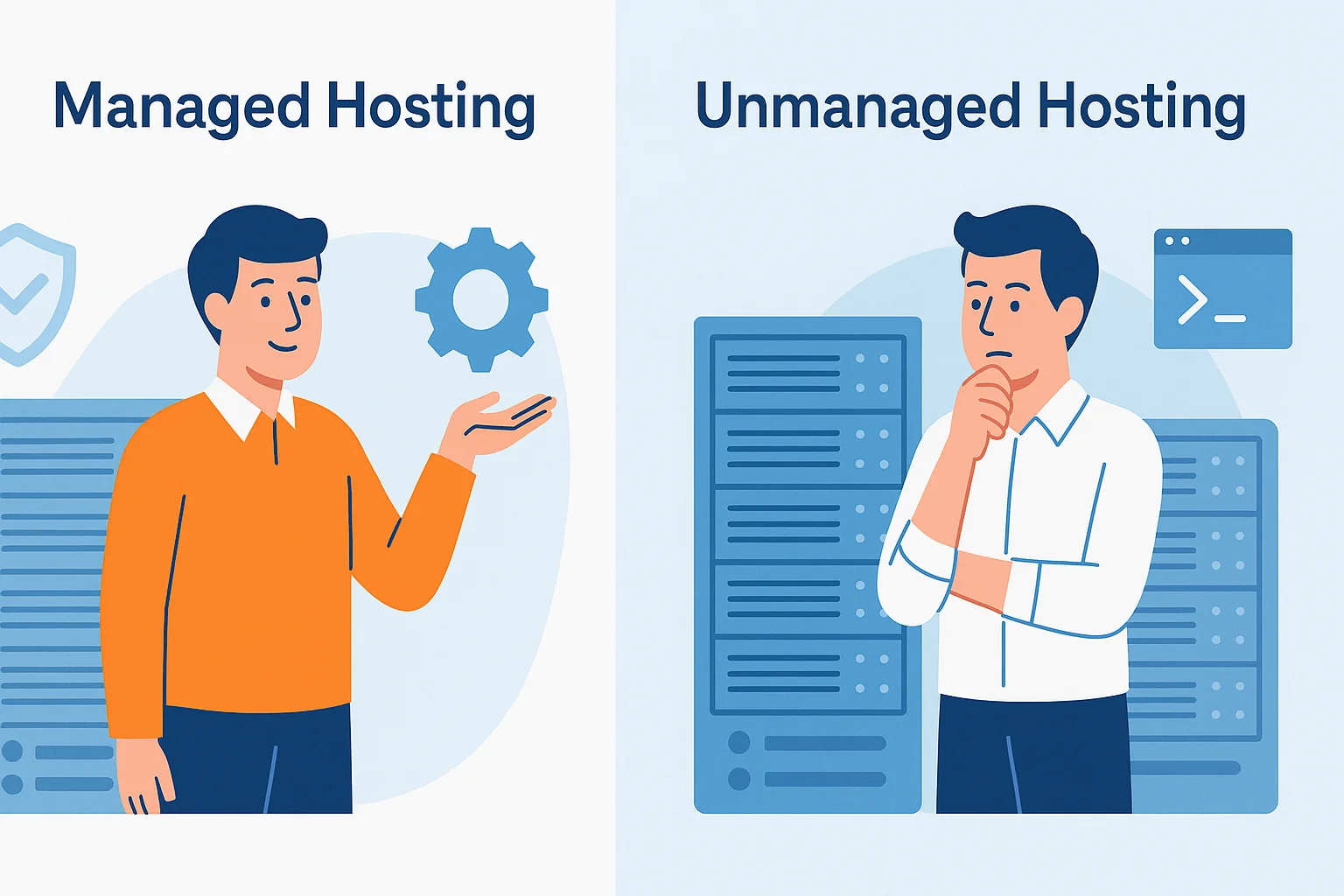
When purchasing a hosting plan, you’ll often see the choice between managed and unmanaged hosting:
- Managed Hosting: The hosting provider handles all server-related tasks like updates, security, monitoring, and backups.
- Unmanaged Hosting: You are responsible for configuring and maintaining the server.
For non-technical users or businesses that need peace of mind, managed hosting is the way to go.
Features to Look for in a Hosting Plan
A good web server hosting provider should offer:
- Easy-to-use control panel (like cPanel or Plesk).
- One-click CMS installations (WordPress, Joomla, Drupal).
- Email accounts with your domain.
- Staging environments.
- Automatic backups.
- FTP/SFTP access.
The more features and flexibility, the easier it becomes to manage your site efficiently.
Final Thoughts
Web server hosting is the backbone of any online project. From personal blogs to enterprise-level platforms, the right hosting solution ensures reliability, speed, and security. It’s not just about storing files — it’s about providing users with a consistent and trustworthy experience.
Take the time to evaluate your needs, compare providers, and invest in a hosting plan that aligns with your goals. A solid foundation can make all the difference in your online success.

